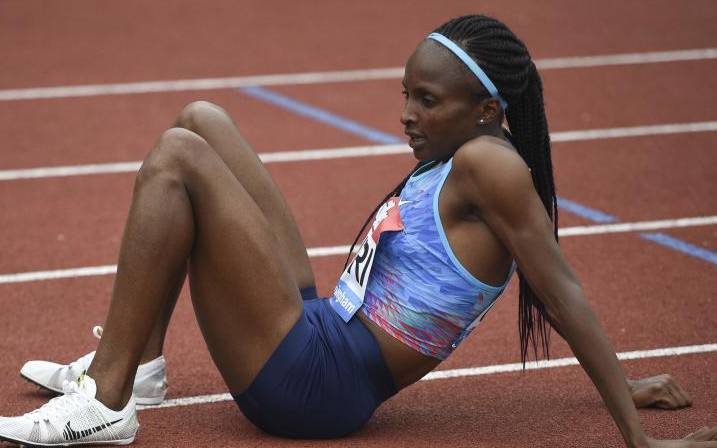
Kenya's Hellen Onsando Obiri reacts after competing in the women's 3,000m during the 2017 IAAF Birmingham Diamond League athletics meeting at Alexander Stadium in Birmingham on August 20, 2017. [Photo: AFP]
It was 5am and the usually bustling city of Doha, Qatar, was pretty much asleep. The night sounds reaching the small room in the magnificent hotel were nothing more than dull thuds from the streets below. In the rooms along the long hallway, adrenaline fuelled and nervous world class athletes were getting ready for the run of their lives. The IAAF Diamond League. The lithe 29-year-old woman asleep in one of the rooms stirred in her bed and opened her eyes.